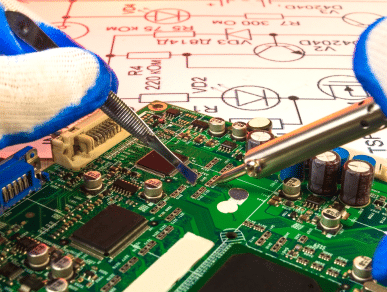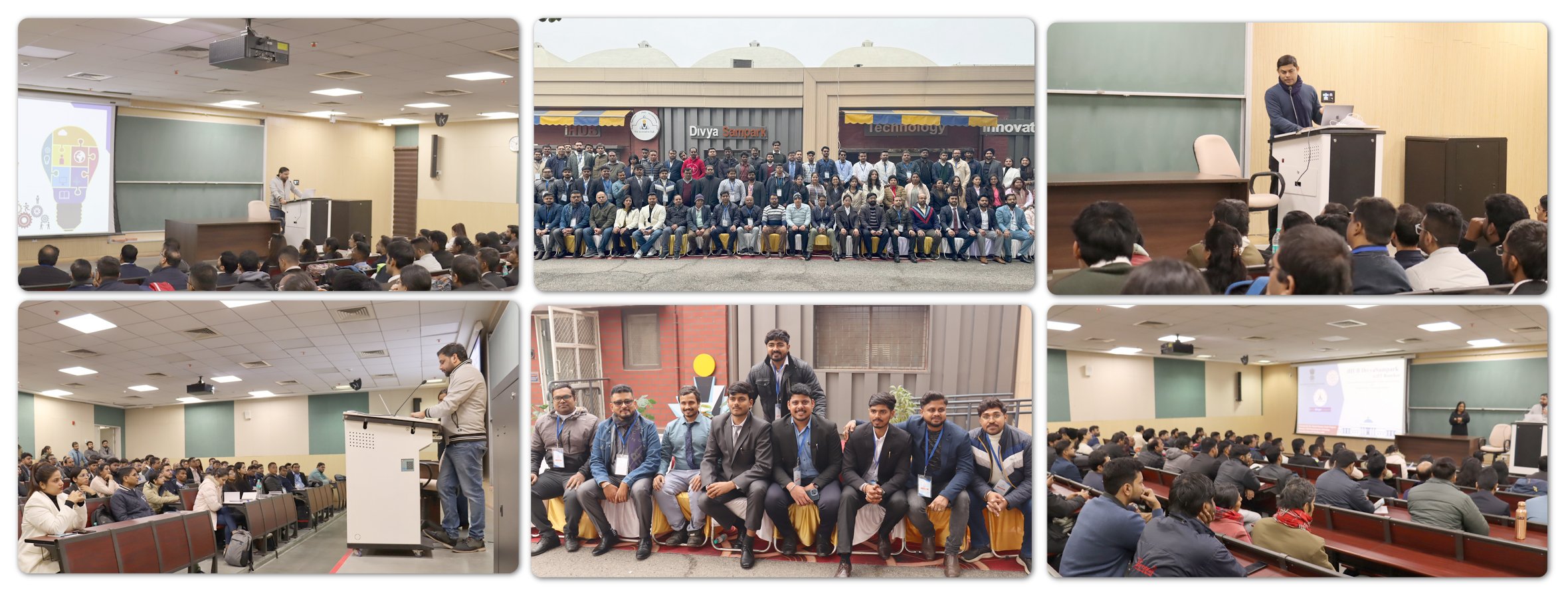Your cart is currently empty.








Watch
Course Preview3 Guaranteed
Interviews
Live Classes
11 Months
Physical Lab
20 Hours of Physical Lab
MATLAB License
For 3 months
Campus Immersion
iHUB, IIT Roorkee
This executive post graduate certification program, developed by the IIT faculty & Industry experts, aims to bring you up to speed as well as deepen your understanding of electric vehicle design and other related concepts. The purpose of this program is to develop the next generation of EV designers who will advance the field of vehicle design.
About iHUB DivyaSampark, IIT Roorkee
iHUB DivyaSampark at IIT Roorkee, established under the National Mission on Interdisciplinary Cyber-Physical Systems (NM-ICPS) by the Department of Science and Technology (DST), focuses on fostering innovation in advanced technologies such as AI, ML, and more. The hub plays a pivotal role in technology development, incubation, and startups, particularly in areas like Healthcare,Read More..
Upon the completion of this program, you will:
About MathWorks
The motto of MathWorks is "Accelerating the Pace of Engineering and Science" where they believe MATLAB is the simplest and most efficient computing environment for engineers and scientists. They combined their expertise in mathematics, engineering, and computer science to develop MATLAB which can provide you with the best practical demonstrations that are requiredRead More..
Achievements- MathWorks
60% Average Salary Hike
50 LPA Highest Salary
11000+ Career Transitions
300+ Hiring Partners
Career Transition Handbook
*Past record is no guarantee of future job prospects
Chemical engineers are crucial to the development of EVs because they investigate various chemical compounds that can be used to improve battery technology’s safety and effectiveness.
Computer science engineers help develop and configure the computational requirements for electric vehicles. This includes setting up and creating algorithms for IoT modules and battery management systems (BMSs) that provide real-time data produced by the operation of EVs.
Electric vehicles have a lot of mechanical and moving components, just like any other kind of vehicle. Mechanical engineers are in charge of creating all of these components, such as the vehicle frames and suspension systems.
Complex electronics are a major component of electric vehicles. The majority of an EV’s operations are controlled by electronic modules. Electronics and communication engineers are in charge of designing, creating, and testing all electronic modules, driver circuits, wiring systems, and many other important parts.
In order to design and test the wiring and power systems of electric vehicles, electrical engineers’ knowledge and skills are a necessity given the very nature of how EVs operate.
Urban planners will select the best location for charging stations and the best way to build the infrastructure for charging vehicles. More urban planners will be needed to develop a strong infrastructure for the EV industry due to its rapid growth.
Skills to Master
Vehicle Fundamentals
Battery Technology
Battery Sizing
Battery Management System (BMS) Development
MATLAB Simulink
Mechanical sub-systems
Charging Infrastructure
Low-voltage Systems
Testing of EVs
Tools to Master
C++ offers high-stability, and lets users directly control hardware when used for embedded programming. It is used to develop codes for embedded systems used in the electronic control of vehicle features. From this program, you will get a basic understanding of C++, object oriented programming concepts, abstraction, inheritance, and polymorphism. More advanced concepts like type casting, template, exception handling, and multithreading will also be elaborated on.
Embedded C Essentials
Embedded C is used in the development of embedded systems for electric vehicles. To understand how software used in EVs and other automotive applications are developed, knowledge on Embedded C is vital. This program will give you an understanding of the modern C concepts needed to develop software for embedded systems. It will teach you about arrays, functions, pointers, command lines. You will also learn about embedded C standards, AUTOSAR, and MISRA C Guidelines as seen in the industry. This program will progress into advanced concepts like Structure Padding, Bit Fields, Make Files, and the implementation of Finite State Machines.
Software and Technologies Used
Battery Systems: The battery pack is a critical component of an electric vehicle. QA involves rigorous testing and validation of battery cells, modules, and packs to ensure their performance, energy efficiency, and durability. This includes tests for temperature management, voltage stability, charging and discharging cycles, and safety features like thermal runaway prevention.
Functional and Performance Testing: QA encompasses extensive testing of the vehicle’s performance characteristics, such as acceleration, braking, range, energy efficiency, and handling. Functional tests are conducted to verify the proper operation of systems like regenerative braking, powertrain control, battery management, and user interfaces.
Reliability and Durability: QA involves subjecting EVs to reliability and durability tests to evaluate their performance under various operating conditions and stress factors. This includes testing for temperature extremes, vibrations, shock resistance, corrosion resistance, and extended life cycle testing. Reliability predictions and failure analysis are also conducted.
Safety Standards and Regulations: QA ensures that EV designs comply with safety standards and regulations specific to electric vehicles. This includes considerations for crash safety, fire safety, electrical safety, and compliance with relevant standards such as ISO 26262 (functional safety for automotive systems) and IEC 61508 (functional safety of electrical/electronic/programmable electronic safety-related systems).
Projects will be a part of your Certification in Electric Vehicle to consolidate your learning. It will ensure that you have real-world experience in Electric Vehicle.

Admission Details
The application process consists of three simple steps. An offer of admission will be made to selected candidates based on the feedback from the interview panel. The selected candidates will be notified over email and phone, and they can block their seats through the payment of the admission fee.
Submit Application
Tell us a bit about yourself and why you want to join this program
Application Review
An admission panel will shortlist candidates based on their application
Admission
Selected candidates will be notified within 1–2 weeks
Total Admission Fee
EMI Starts at
We partnered with financing companies to provide very competitive finance options at 0% interest rate
Financing Partners
![]()
Admissions close once the required number of students is enrolled for the upcoming cohort. Apply early to secure your seat.
Next Cohorts
| Date | Time | Batch Type | |
|---|---|---|---|
| Program Induction | 5th July 2025 | 07:00 PM - 10:00 PM IST | Weekend (Sat-Sun) |
| Regular Classes | 5th July 2025 | 07:00 PM - 10:00 PM IST | Weekend (Sat-Sun) |
The program has been designed by the top Industry experts & IIT faculty. It provides all the necessary skills to endow candidates with the best chances of making a career in the EV industry.
Upon successfully completing the program and passing the certification exam, you will be awarded an Executive Post Graduate Certificate in Electric Vehicles by iHUB DivyaSampark IIT Roorkee.
The certification program will offer you the chance to become an electronics engineer for various electronic components. It also offers the chance to go along the lines of a mechanical engineer and design mechanical subsystems. It will also allow you to work as a computer science engineer for electric vehicles.
Our support team is always available to help you with any doubts that you may have. You will also be assigned a dedicated teaching assistant who will help you with doubt resolution.
You will be trained by industry experts with the knowledge and know-how required to provide you with all the necessary skills to make a successful career in this field.
Indian candidates with graduation or diploma certificates from recognized universities and institutes (UGC/AICTE/DEC/AIU/State Government) in any discipline are eligible.
International participants who have a graduate or equivalent degree from any recognized university or institution in their respective country are eligible.
Intellipaat will provide career services with the guarantee that all learners enrolled in this program will be granted interviews. iHUB DivyaSampark, IIT Roorkee will not be responsible for any career services.
This program is for committed learners, and hence we only allow candidates whom we can help grow professionally in their careers. To that end, we expect the candidates to be 100% committed to it. There is no refund applicable to this program, and all payments are full and final.
Please note that the program fees is non-refundable and we will be at every step with you for your upskilling and professional growth needs.
Due to any reason you want to defer the batch or restart the classes in a new batch then you need to send the batch defer request on [email protected] and only 1 time batch defer request is allowed without any additional cost.
Learner can request for batch deferral to any of the cohorts starting in the next 3-6 months from the start date of the initial batch in which the student was originally enrolled for. Batch deferral requests are accepted only once but you should not have completed more than 20% of the program. If you want to defer the batch 2nd time then you need to pay batch defer fees which is equal to 10% of the total program fees paid for the program + Taxes.
You will be provided with extensive 24 hours of training from MathWorks.
There will be 2 classes in a week for MATLAB and the time duration will be 7 pm – 10 pm.
The commencement of the MATLAB official classes determines the start of the validity period. Intellipaat has control over when to schedule these sessions.
MathWorks will provide you with the license key two days ahead of the official training commencement.
Yes, Intellipaat certification is highly recognized in the industry. Our alumni work in more than 10,000 corporations and startups, which is a testament that our programs are industry-aligned and well-recognized. Additionally, the Intellipaat program is in partnership with the National Skill Development Corporation (NSDC), which further validates its credibility. Learners will get an NSDC certificate along with Intellipaat certificate for the programs they enroll in.
The total duration of the program is 11 months and out of which 2 months will be for project work.
All candidates applying for this course are eligible for equity-based seed funding and incubation support from iHUB DivyaSampark, IIT Roorkee, for their startup ideas. Enrolled students will have the opportunity to pitch their ideas to the iHUB DivyaSampark team, and shortlisted proposals may receive funding of up to ₹50 lakh, along with full incubation support.
Additionally, candidates who are currently enrolled in a degree program and have their startup idea approved may also receive a monthly fellowship/scholarship of ₹8,000 during the early phase of their project to encourage and support innovation.
An additional fee of ₹15,000 is expected to be paid to Intellipaat at the end of the program to become eligible for the MATLAB official certification. This fee also includes access to the MATLAB lab for a duration of 3 months from the date it is allocated.
What is included in this course?
 Click to Zoom
Click to Zoom
 Click to Zoom
Click to Zoom








